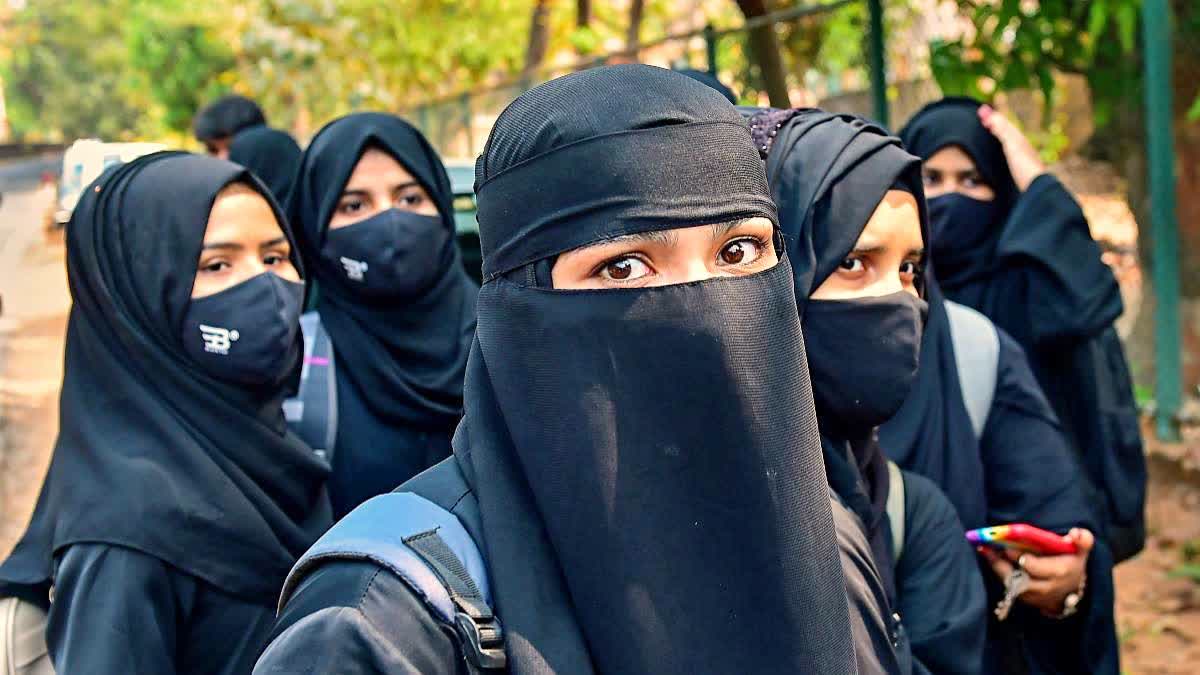Hyderabad: Muslim Women's Rights Day is observed nationwide on August 1. The day commemorates the adoption of the law prohibiting triple talaq, which took effect on August 1, 2019.
Honouring the legislation, the Ministry of Minority Affairs announced in 2019 that August 1 would be recognized as Muslim Women Rights Day. Consequently, Muslim Women Rights Day was commemorated for the first time in 2021. It was the case of Shayara Bano vs Union Of India that laid the foundation stones for this historic move.
Triple Talaq and history behind the day:
Talaq-e-biddat, also referred to as triple talaq, is a method of immediate divorce that permits a Muslim man to end his marriage by uttering the word “talaq” thrice in any manner. This practice has faced severe criticism for being biased towards women and infringing upon their basic rights.
The triple talaq, a form of divorce, has a long history in Islam but became more common in the 19th century, especially under British rule. The British government used it to reduce Muslim women's power and simplify divorce for men. In 1937, India made it official under the Muslim Personal Law Act, giving it legal status over secular laws.
● In 2016, Shayara Bano, a Muslim woman from Uttarakhand, filed a constitutional challenge against triple talaq in India's Supreme Court. Bano claimed that triple talaq was a form of gender discrimination and violated her fundamental rights.
● The Supreme Court heard the case in May 2017, and issued its decision on August 22, 2017.
● In a 3:2 verdict, the Supreme Court ruled that triple talaq was unconstitutional and void.
● The court decided that the practice violates Muslim women's fundamental rights, such as equality, life, and dignity.
● The Supreme Court criticized it as "manifestly arbitrary" and said that it permits a man to "break down a marriage whimsically and capriciously"
● The Supreme Court's verdict in the Shayara Bano case represented a significant victory for Muslim women's rights in India. The verdict contributed to the protection of Muslim women's rights and the promotion of gender equality in India.
● In July 2019, the Indian Parliament approved the Muslim Women (Protection of Marriage Rights) Act, which criminalized triple talaq.
● The law makes it a serious criminal offense for a Muslim man to divorce his wife by triple talaq.
● Divorced women might receive up to Rs 5 lakh as compensation according to the law.
Significance:
The day is extremely significant because the government feels that the law has enhanced the "self-reliance, self-respect, and self-confidence of the Muslim women of the country and protects their constitutional, fundamental, and democratic rights by bringing the law against Triple Talaq." According to a government report, the Supreme Court struck aside the practice of divorce on August 22, 2017, in a majority decision that declared Triple Talaq a violation of Article 14 of the Constitution.
Supreme Court's Big Alimony Order For Muslim Women (2024):
In a historic ruling, the Supreme Court declared that a divorced Muslim woman can seek maintenance from her ex-husband under Section 125 of the Criminal Procedure Code (CrPC).
The Court further stated that if a Muslim woman divorces while her application under Section 125 CrPC is pending, she can seek relief under the Muslim Women (Protection of Rights on Marriage) Act, 2019. Along with Section 125 of the CrPC, this statute provides further remedies.
Recognised Muslim women's labour
The Supreme Court's decision has strengthened the feminist movement in India by emphasizing the ideals of equal application of the law and gender equality.
The bench has also recognized the contributions of women of different religions, castes, and communities. Women are expected to perform a variety of unpaid activities in the home, including cooking and cleaning as well as caring for children and elderly family members. They often lack the time and freedom to seek paid jobs. Women's labour supports families, economies, and often covers shortages in social services. However, it is not considered "work" in the normal sense. The Supreme Court recognized women's labour by granting them the ability to demand alimony.
Read more



